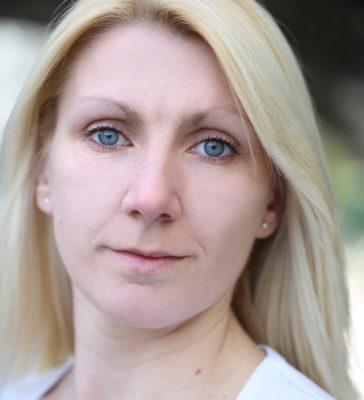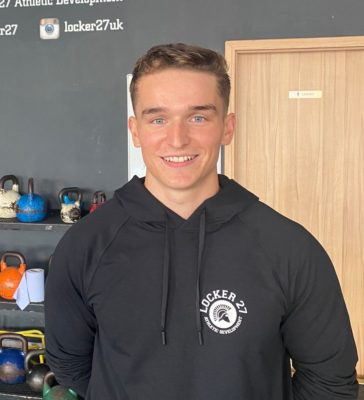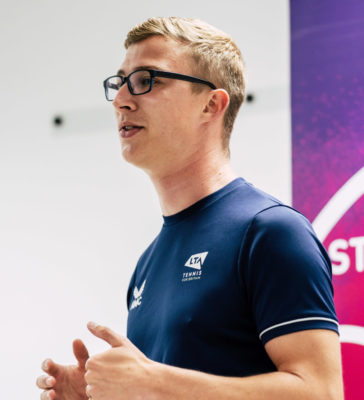
Kathryn Merrick
Current Employer/Organisation Name
Self-employed Creative Arts Facilitator
What have you been doing since leaving Exeter, and what are you doing now?
By the time I left university, I had a clear idea of what I wanted to do – I knew that I wanted to work in theatre, and I knew that I wanted to work with young people. After graduating in 2008 I spent a gap year working in a school in New Zealand, then moved to London and began trying to find work. I ended up taking a temp job in an office, and doing some volunteering with local youth theatres to build up my CV, before starting to apply to companies as a freelance facilitator. By October 2010 I had left the office and was working as a self employed facilitator, contracting to several companies around London – and I haven’t looked back since! I spent a decade living in London and contracting to various arts organisations. Most of my work involved visiting schools and delivering educational performances and workshops, with holiday projects thrown in a few times a year! Living in London kept me really busy and there was lots of work for me, and a great way to build my skills up. My most recent change came about in January 2021, when my husband and I decided to relocate to West Sussex. I wasn’t sure what that would mean for my work (particularly on top of a global pandemic that shut a lot of schools!) but it’s been a really interesting year. I’m still contracting to some of my London companies and am travelling to work with them (a lot more early mornings!) and most recently I’ve started my own business! I’m now working with local schools and am writing and delivering drama workshops for schools in my new area, which is hugely exciting! It’s still very early days, but the next adventure is off to a strong start!
Why did you choose this career? And what do you enjoy most about your work?
I was always the quiet kid at primary school, so when I started secondary school my Mum enrolled me in a local youth theatre to try and bring out my confidence (I’m still not sure how much she regrets that one!) I was instantly hooked and fell in love with the world of theatre! While initially it was acting that grabbed me, as I grew older I began to look more closely at the role of our youth theatre director (an incredible woman who I am still in touch with to this day) I could feel the difference that the youth theatre had made to me, and realised that I wanted to be the one making that impact on other young people. By the time I went to university, I was sure that theatre with children was what I wanted to do – and years later, it hasn’t changed! There are lots of amazing things about my career – no two days are the same, and I’m able to be active and on my feet a lot. Creating my own content is hugely exciting, and I love watching my ideas and plans come to life when presented to young people. I’m always interested in the way a group of children will react to a session – there are workshops that I’ve delivered 100 times, and I still get surprised by a new idea or perspective volunteered by a student. However, my absolute favourite part of the job has to be the people – teachers do the most amazing job, and children are such exciting and creative people to work with! I love their imagination and ideas, and almost always leave work with a smile on my face. My job consistently makes me smile, and I don’t think you can ask for more than that.
Please tell us if you were a member of any societies, groups or sports clubs?
I was part of the Gilbert and Sullivan Society for the three years that I was at Exeter, and absolutely loved my time with the group. The standard of the shows was always amazing, and getting to perform in a space like the Northcott was fantastic! I’ve made some friends for life through the society, and we always look back on our EUGnS experiences fondly.
What did you enjoy most about your programme and what was the biggest highlight?
The balance between theory and practical work. Many of the universities that I looked around were keen to stress that they weren’t a drama school and were more concerned with theory, but Exeter allowed the opportunity to put the theory into practice. Being able to physicalise what we had learned was hugely helpful to me, and I felt like the balance between theory and practice was a perfect fit for me.
What did you enjoy most about studying here?
So many things, it’s hard to choose! Firstly, the course was fantastic, and the facilities available for drama were amazing. I also loved how many other opportunities there were to engage with drama outside of the course – there were so many societies available, and a number of performances that sprung out of a few students putting their heads together and getting something up on its feet! Academics aside though, I’d have to say the people and the environment at Exeter. I met so many amazing people during my three years, and am delighted to still be able to call some of them my friends today. Professors were hugely helpful and supportive, and it was a fantastic environment to learn and live in
Why did you choose to study at Exeter?
From the moment I got off the train for my interview, I had a good feeling about Exeter. It didn’t feel too big or overwhelming, but had plenty going on (and loads of green space!) My interview/audition took place over two days, so I was able to spend a bit of time on campus (including a stay in the dearly departed old Lafrowda halls!) Between the welcome I received, the people I met, and the fun that I had during my group audition, I came away knowing that I would be happy there. Years later, I’m delighted to say I was right!
What skills and experiences have been most useful for your career?
It’s a strange one to start with, but organisation has been vital for me. I manage my own diary, bookings and invoices, so it’s really important to stay on top of that and ensure I’m giving accurate information to schools that want to book me (I’ve met facilitators who are extremely talented, but have put people off with their lack of organisation and time management – it doesn’t look good) Communication is also vital for my work. When I was in London and contracting to several companies, keeping in touch with all of them was really important, and now that I’m striking out on my own, it’s so important for me to touch base with schools regularly and keep them up to date with plans and arrangements. There is a lot of time management involved in my work, and a level of discipline too – as I’m self employed, often there is no one planning things for me, or breathing down my neck over deadlines. While that’s a lovely way to work, it does mean that I have to make sure I’m holding myself to account and keeping up with the work that I need to do outside of schools. It’s very easy to get lazy when no one is making you do it, so keeping up with the admin side of the job is something that I had to get used to! Experience-wise, I’m extremely fortunate to have worked with some amazing people and fantastic organisations, and I know how much this has helped me to form my own practice and to figure out what works for me. Every job has taught me something (even if it was ‘that didn’t work at all!’) and I find it really important to pay attention to what works and what doesn’t, even after all these years. Working with other people has taught me a huge amount about different practices, but also about my own – I now have a much better understanding about what works for me, and can use my strengths to make my work the best it can be.
What advice would you give to a current student who wishes to pursue your career?
Gain as much experience as you can! I’m all for valuing yourself as an artist, but if you’re brand new to the field and need to make your CV stand out from the crowd, look at the ways that you can add to it, even if that means volunteering or low paid opportunities. I volunteered with a local youth theatre while I was a student at Exeter who were delighted to have me, and spent my university holidays assisting with holiday workshops at my youth theatre at home. Not only did I learn a huge amount through these different jobs, but it meant that my CV stood out. Following on from that – use your contacts! I was very lucky to have an amazing youth theatre tutor while I was in school, and she was incredibly helpful to me as I went through university and beyond. Whether it was letting me help out with youth projects, answering questions over a coffee, or giving me my first ever youth theatre directing job after university, she was always happy to help. If you are lucky enough to have any useful contacts (a youth theatre tutor, school drama teacher, university lecturer, or anyone whose work interests you) then do use them – keep in touch, ask for help, and take advantage of any opportunities given to you. You’ll build up your skills and your CV! Be prepared to work hard. My line of work isn’t about getting a job and sitting in it for 20 years. It’s a continuous process of making connections, finding work, developing content, delivering sessions, and repeating. It’s incredibly rewarding (and does get easier with practice) but you have to be ready to work hard and be responsible for driving yourself. Know your worth. I mentioned volunteering earlier as a means to gain experience, but understand when enough is enough. The arts are notorious for people undervaluing our work (“What? You want to be PAID? But I thought you did it for the love of the craft!”) and it’s important to recognise what your skills are worth. Yes, I love my job, but it is a job. This is something that I’ve always found challenging (and I’m having to practice what I preach with my new business) but there’s no shame in putting a price on your skills. If you’re unsure about price points, try to find someone that you can ask for advice. Understand that things won’t always be predictable. As so much of my work is based in schools, my work can fluctuate a lot over the academic year. There are times when I’m snowed under and stressed beyond belief, and there are times when things go quiet and I wonder if I’ll ever work again. Understanding that has been vital for me personally, and after several years, I’m more able to anticipate the quiet patches and prepare for them. The last 18 months have been a huge challenge (thanks Covid) but I’m proud to have made it through. Take care of yourself. The hours can be long, the days can be lonely (I work alone a lot), and when there’s no one telling you to clock off at 5:30pm, it can be very hard to know when to stop. Try to limit the amount you’re taking on in one day, and make sure you’re making time for yourself. Whether it’s seeing friends, exercising, or doing something that makes you smile, schedule in some You Time every day. Lastly, enjoy yourself and have fun! I absolutely love my job, and for all the madness and mayhem that it brings, I wouldn’t change it for the world!
What are your plans for the future?
Who knows? Right now my focus is on getting my new business up and running (it’s still very early days) and on getting back into schools. Schools and students have had an incredibly tough time over the last couple of years, and being able to bring a bit of sparkle back to the curriculum feels especially rewarding right now. Other than that, I’m still enjoying the novelty of finally being back in schools, and doing the work I love! For now, I’m thinking about the present – the future can worry about itself!

